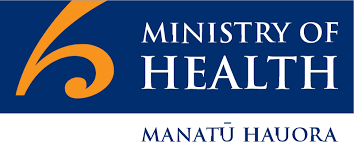Ministry of Health meeting: raising awareness of rare disorders

RDNZ recently organised a meeting with Ministry of Health officials to amplify the collective voice of people living with a rare disorder, with a focus on GP awareness and education.
A number of support group leaders attended this meeting and spoke about their experience of living with a rare disorder in New Zealand.
Here is an update from Samantha Lenik, Vice President of the New Zealand Pompe Network
“On Tuesday 29 June I participated in Rare Disorders New Zealand’s quarterly zoom meeting with the Ministry of Health, alongside Kelly (Ehlers-Danlos Syndromes NZ) and Stephen (Defeat Multiple System Atrophy, to discuss awareness and education for rare disorders.
The meeting was made up of 15 representatives from various Ministry of Health factions. Organisations like: Antenatal team; Mental Health; Disability; Clinical Nurse Directory; RDNZ Board member and member of the Paediatric Society of NZ Rosemary Marks; Maori Health team; Pacific health team; Dr Brian Betty, Medical Director Royal NZ College of General Practitioners; and Lesley Clarke, New Zealand Medical Association.
As a patient living with the rare disorder Pompe, I discussed my seven-year road to diagnosis, of seeing doctors and physiotherapists about back pain, leg pain, shortness of breath and falling over. No one ever investigated anything out of the ordinary. The other patient representatives and I also discussed the obstacles and the problems that we have encountered, and still have, with the medical system.
Lisa Foster (RDNZ) gave an overview as to the lack of awareness among the medical profession and shared a presentation from Medics4RareDisease. This is an organisation set up in the UK that has an established training platform to provide education in the rare disease field for medical students and doctors in training. Their aim is to improve the patient-doctor relationship and speed up the journey to diagnosis.
The meeting was then opened for a general discussion as to next steps forward. There was some agreement with Lisa that there is a big problem with sharing of information. That it is really difficult for GPs to get a second opinion on something that is considered outside of the common remit. There was discussion that the clinical acumen in New Zealand is not great, and that rare disorders need to be seen as a separate entity within our system so it can be addressed.”
The conclusion of the meeting was for RDNZ to establish a working group to keep the momentum in this area. If any of the RDNZ support group leads would like to be part of this working group, please get in contact